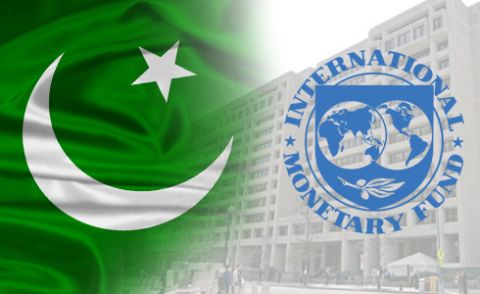KARACHI: International Monetary Fund (IMF) released its economic outlook report for Middle East and Central Asia and said Pakistan has a great chance to grow its exports and economic growth by signing bilateral and multilateral trade agreements.
This regional economic outlook is prepared on an annual basis by IMF. The report highlighted that an uptick in exports during the first half of 2017 contributed to improved economic activity in Pakistan.
It added that Pakistan had seen improvement in its export quality in the apparel production sector since last few years. Apparel forms a key aspect of the country’s textile sector which contributes to more than 60pc of its $20b export earnings, reported a local newspaper.
IMF said a stronger global economy outlook would assist external balance despite its forecast of current account deficit to stand at 4.9pc in 2018 compared to 4pc in 2017 and 1.7pc in 2016, respectively.
The report further detailed that agricultural activity is susceptible to price developments and weather changes in Pakistan. It shared a fall in cotton prices, would reduce government revenue which would result in downturn of export receipts and widen current account deficit.
Washington-based lender commented that China-Pakistan Economic Corridor (CPEC) is contributing to increase in investment and spurring credit growth, which contributed to economic growth touching 5.3pc.
It projected real GDP growth rate to touch 5.6pc in 2018 and the expected rise in public investment would add to cementing medium-term growth. IMF forecast the country’s fiscal deficit to touch 5.4pc for 2018 compared to 5.7pc in 2017.
Furthermore, stable international food prices had kept inflation under check in Pakistan and it projected consumer price inflation (CPI) to touch 4.8pc for 2017, compared to 4.1pc in 2017.
IMF issued a warning that soaring public debt over more than 50pc of GDP would increase its vulnerabilities due to high current expenditures and poor domestic revenue mobilization.
However, private sector growth rate has gone up since the start of 2017, due to a stable and a competitive monetary policy. The report cited that improving banking sector regulatory forms had contributed to a fall in non-performing loans from its previous high levels in Pakistan
IMF said private sector credit growth rate in Pakistan has risen since the beginning of 2017 because of accommodative monetary policy. It added that nonperforming loans continue to decline from high levels in Pakistan as banking sector regulatory reforms are progressing.
























